The Re- Rebirth of the Conservative Party
Liz Truss has shown a remarkable skill for reinvention, could the Conservative Party under her do the same and win again?
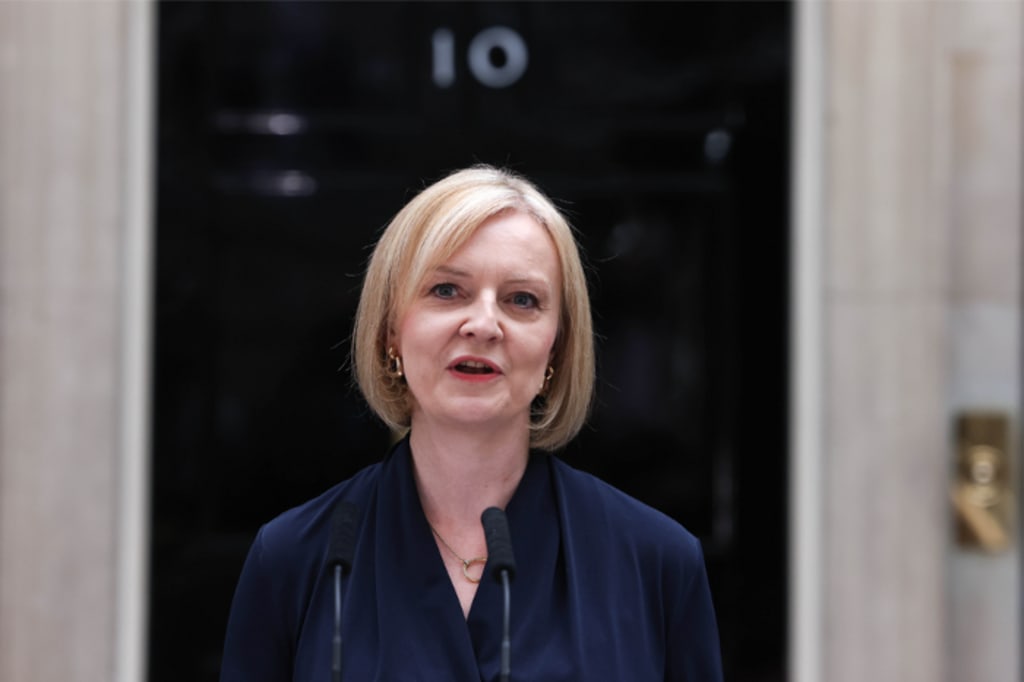
Since the early 21st Century the Conservative party — widely regarded as the most successful political party in history — has shown immense capacity for reinvention. First under Cameron, shedding the ‘nasty party’ label, and projecting an image of supposedly compassionate Conservatism — fiscal discipline combined with socially liberal policies to match the public mood. Then again with Theresa May, coming to power with promises to help the left behind, often co-opting Labour policies (energy price cap anyone?) and combining this with a more nationalist worldview — Brexit means Brexit, in case you’d forgotten.
Under Johnson this transformation was complete, and considerably more successful, with him embracing a sort of big-state conservatism, favouring deregulation alongside big increases in government spending, as well as a full-throated endorsement of Brexit. Thus allowing the Tories to sweep much of Labours ‘Red Wall’ in the 2019 election.
Under Liz Truss the Tories look likely to reinvent themselves once more, moving away from the big-state conservatism we’ve seen in recent years, to a more neoliberal, low tax, low regulation approach to the economy, alongside likely more conservative social policies — bear in mind the new health secretary opposes abortion, that’s one to watch.
But this reinvention begs the question, could the Liz Truss pull it off, and achieve an unprecedented 5th consecutive general election victory for the Conservatives?
. ..
Liz Truss’ political career within the Conservative Party is a fascinating one. Formerly a Liberal Democrat, she was first selected to fight her South West Norfolk seat in the 2010 election. She quickly faced threats of deselection in light of revelations surrounding a previous affair with her then-mentor, Conservative MP Mark Field (the one who choke-held a climate activist, lovely chap).
She survived the attempts, and went on to win the safely Conservative seat in the 2010 election, increasing her majority in every election since. She rapidly entered government, being appointed parliamentary under-secretary of state for education and childcare in 2012, and then in 2014 was promoted to Secretary of State for Environmental, Food, and Rural Affairs — a rapid rise to cabinet.
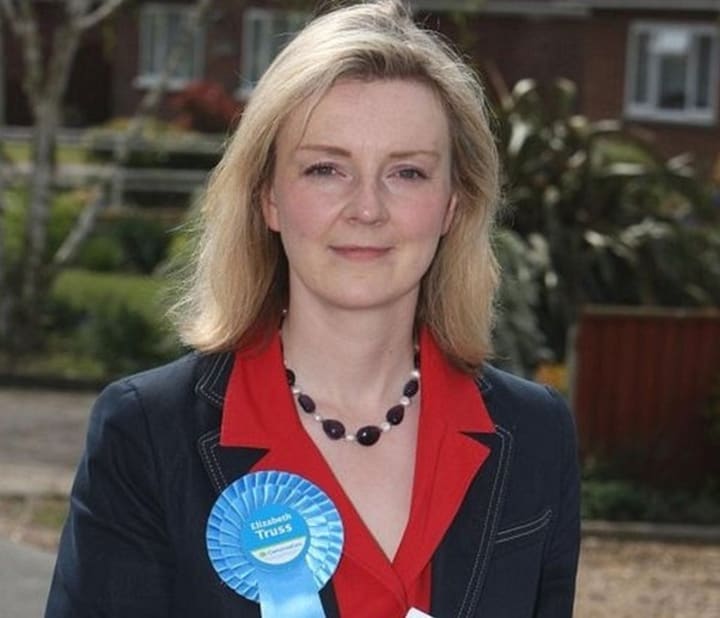
Come 2016, it was time for reinvention. During the Brexit referendum Truss had been a high profile supporter of the remain campaign, arguing that leaving the single market would leave the U.K. poorer and economically isolated. However, in the wake of the vote to leave, she quickly argued that Brexit offered an opportunity to shake up the way we do things. A genuine change of heart or a craven political move? That’s likely down to your perception, but it worked, with Truss quickly being appointed as the first ever female Secretary of State for Justice in Theresa May’s first cabinet. She didn’t last long however, and following high profile arguments with the judiciary, she was reshuffled to the role of Chief Secretary to the Treasury — a move widely viewed as a demotion.
This setback didn’t deter Truss, and following May’s departure, she was moved to the role of Secretary of State for International Trade by Boris Johnson. This put her in charge of negotiating trade deals for a post-Brexit U.K., and offered her her first opportunity to project herself on the world stage. She clearly impressed Johnson, and was promoted to the role of Foreign Secretary in the 2021 reshuffle, replacing Dominic Raab, who had been widely criticised for his handling of the Afghanistan withdrawal in the summer of that year.
It was around this time that echoes of Thatcher began to appear. In November 2021, Truss joined British forces participating in NATO training exercises in Estonia — an event that would be otherwise unremarkable. However, during this trip Truss was photographed in a tank, wearing full protective gear. Comparisons were quickly made with Margaret Thatcher, who was photographed in much the same way back in 1986.

Once would be a coincidence, but more examples of imitation came thick and fast. Photos of Truss wearing an Ushanka in Moscow, riding a Triumph motorcycle, wearing the same clothes as Thatcher to one of the Conservative leadership debates, posing in front of a massive Union Jack painted on the side of a building — arguably the most blatant imitation, which of course Truss denied, rather admirable really.
The similarities aren’t limited to presentation, with Truss’ policy platform also having echoes of Thatcher. Throughout the leadership campaign Truss rallied against economic interventionism, regarding tax cuts and deregulation as the key to fixing all the nations ills. She argued that Britain had been held back by sluggish recovery in the wake of the 2008 financial crash — a recovery that was, of course, overseen by her own party — and only through curtailing an overly bloated state would Britain return to levels of growth last seen decades ago. She opposed handouts, seemed incredibly relaxed about inflation (a rare deviation from Thatcherite thinking), and refused to be drawn in on her plans to address the cost of living crisis.
This approach worked, pleasing a Conservative party base that crave a return to the ‘good old days’ of Thatcher, when workers had no rights and if you starved then that was your problem. Truss handily won the Conservative leadership contest, beating out the much more frugally minded Rishi Sunak.
However, Truss’ constant transformations have opened her up to accusations of being a ‘political chameleon’; standing for nothing and simply following the political wind, whichever way it blows. Regardless of what you think of this ideological fluidity, it has clearly worked, allowing her to survive three consecutive Prime Minister’s, and ascend to the highest office. In fact, Truss has the unique distinction of being the longest serving minister who still remains in cabinet, having served in the cabinet continuously since 2014.
If she can convince three PMs — all ideologically distinct — that she is politically transformed, then what’s stopping her convincing the public of the same about herself and her party?
. ..
Truss’ lack of ideological rigidity has been perfectly demonstrated in her response to the energy crisis. On Sunday, Truss was arguing that tax cuts for the rich were entirely fair, and were the ideal way to address the energy crisis. By Thursday, she was in the commons, announcing likely the most expensive government intervention of her premiership, capping energy bills at an average of £2500 for the next 2 years — all at a yet undetermined cost, although it could exceed £100bn.
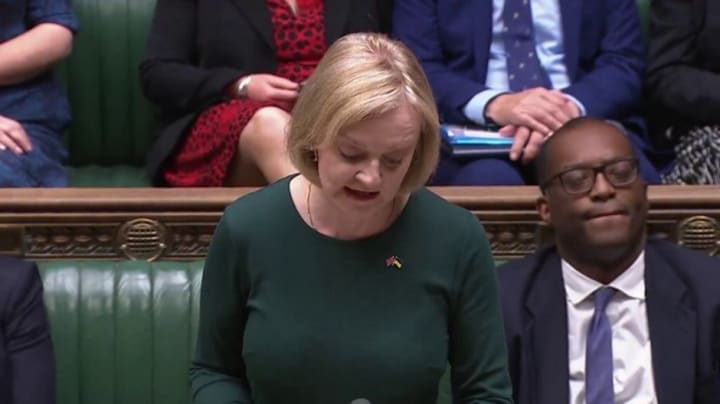
The pace of this transformation is extraordinary; however it is worth noting that she likely had such a plan in mind during the leadership contest, choosing to keep quiet in the knowledge that such huge spending may not endear her to a fiscally conservative minded membership. Regardless, such huge intervention in the energy market — by the Conservative party no less — suggests a willingness by Truss to put aside dogma, in favour of responding to crises in whatever way is deemed necessary.
In a sense, she shares this quality with Johnson, who during the Covid pandemic was forced to put aside his libertarian instincts to implement lockdowns as means to controlling the epidemic. However, whilst Truss and Johnson do share an ideological fluidity, Truss differs from Johnson in one key aspect — her decisiveness. Too often, Johnson would delay key decisions, reluctant to accept the writing on wall, seemingly hoping for a miracle to save him from having to make major decisions. Truss hasn’t shown any such tendency, acting rapidly to address the energy crisis. This is a decisiveness that could serve her well over the next couple of years, which promise to be riddled with challenges.
However, whilst acting decisively to address the energy crisis is commendable, the content of Truss’ policy is also key — this is where Truss risks coming unstuck. In abandoning her opposition to big government, she has taken a huge gamble. Her ‘energy price guarantee’ is essentially a blank cheque for energy companies. No matter how high the unit price of gas and electricity, the government will cover all costs above the cap — and that’s the bit that matters. The reality is, no matter how good the government likes to think it is at forecasting future events, no one really knows how high energy prices could rise.
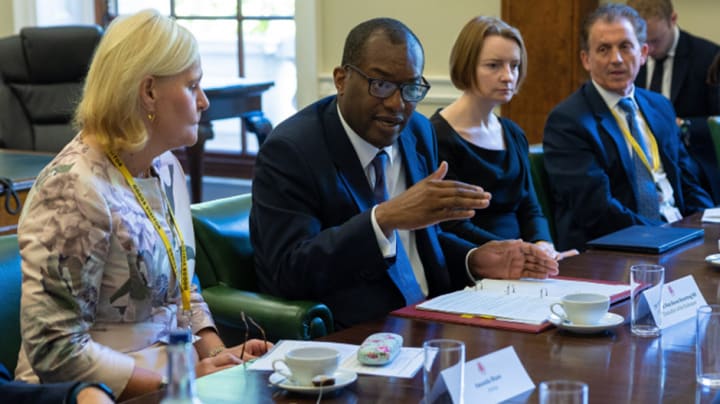
Consequently, no one really knows how much this energy price guarantee will cost. Even the government has refused to outline costs, with Truss instead saying that costs will be outlined in her Chancellor Kwasi Kwarteng’s first budget.
Independent analyses paint an expensive picture. Analysis by Sky News suggests a price tag of over £100bn, however this could change based on what wholesale costs do over the coming months. As such, the price of the policy could end up below this £100bn mark should the price of energy fall — there are potentially signs of this happening. However, the opposite is also possible, with potential escalation of the war in Ukraine, or a particularly cold winter leading to increased energy usage, both having the potential to push the cost of the package upwards.
If the cost were to get out of control, Truss would find herself in a very difficult position. Either curtail the package, withdrawing some support to keep costs down and risk pushing people into poverty, or maintain the package, risking huge debt and a downgrading in the UKs credit status — potentially destroying the Conservatives reputation for economic competence. Neither option would be ideal, and both would make the Conservatives already difficult task of winning the next election even more challenging.
Truss has bet billions on energy prices falling in the long term. If she’s right, it could secure her a win at the next election. If she’s wrong, the Tories risk electoral devastation. Rarely is such a pivotal decision taken so early in a PMs term.
. ..
One factor effecting the Tories re-election chances that Liz Truss can’t control is the Labour Party. Her chances of success rest on not just how she responds to the energy crisis, but also on how Starmer’s Labour respond, and if they hold her feet to the fire over her response.
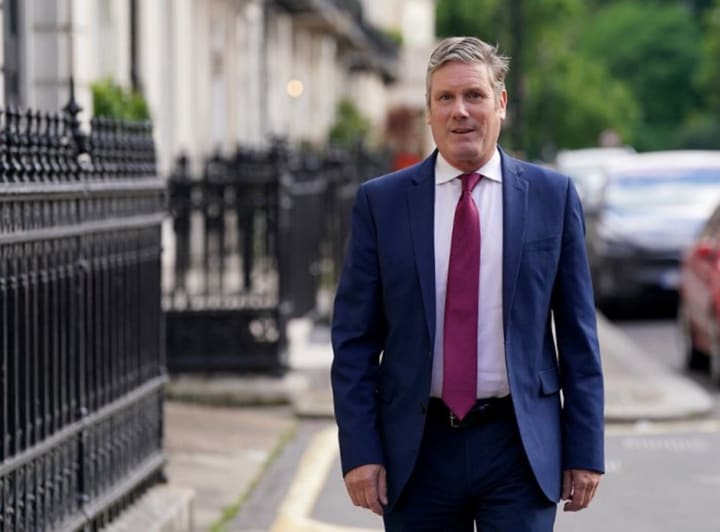
Labour have announced their own policy to address the energy crisis, calling for a cap in prices at the current level until at least January, funded by a windfall tax on energy company profits. They argue that such an approach is the fiscally responsible thing to do, and that Truss’ package risks saddling future generations with debt for years to come. They also back increased investment in nuclear and renewable energy, as well as insulating millions of homes, with the aim of saving households approximately £500 per year on energy bills.
Labour’s policy appears to have been well received, and there have been signs of an increase in those believing Keir Starmer would make a good PM over the last few months. Polling by Ipsos shows that the percentage saying he would make do a ‘good/fairly good’ job has risen from 33% in July, to 40% in September. Meanwhile, those saying he would do a ‘very/fairly bad’ job has fallen from 31% to 27%. This is undeniably good news for Starmer, but it remains the case that a large percentage of the population are yet to form an opinion on him. Almost 30 months into his leadership 33% of the British public still have no opinion on how good he would be as PM. That number should ring alarm bells. Granted, that means he has room to define himself and increase his approval dramatically, but he also risks allowing the Conservatives to define him as they see fit, handing them a much needed electoral boon.
. ..
Elections are rarely won by default. For the last few months Labour have tried to tread a cautious path, trying to win over wavering Tory voters, whilst also not alienating their more left-wing base. This approach does, in theory, make them palatable to a wider range of voters, but it also carries risk. Labour’s cautious approach — at least relative to the Tories — has clearly left many voters indifferent to the party, and whilst they currently lead the polls, this support is soft, and indifference rarely wins elections. Remember Labour led the polls by over 10 points for much of the 2010–15 parliament, and still went on to lose. Starmer’s failure to excite risks handing Truss and the Tories an unprecedented 5th term. Hopefully their energy strategy announcement is a sign of a bolder approach in future, but we shall have to wait and see.
It’s important to be frank, winning a fifth consecutive election would be an unprecedented feat. The headwinds facing the Tories after 12 years of government are strong, and may be stronger still come election-time (assuming it’s held in 2024). However, that doesn’t mean they should be written off. 2019 acted as something of a reset for the Tories, and handed them a large majority, providing them an electoral cushion. Losing an election after a landslide is rare, and Truss’ capacity for reinvention could allow her to redefine the Tories once more, refreshing them in the eyes of the voters, and enabling her to lead the Tories to victory.
Labour ought to be wary. Relying on crises to hand them the election by default is risky, and Truss has shown remarkable resilience during a time of immense turmoil in the Conservative party. Labour should oppose her as they would any other leader, and act with the radicalism and confidence necessary to excite the country.
If they fail to inspire, they risk allowing Truss to transform herself once again — and the Conservative party along with her — potentially leading them to a fifth term. I shudder to think of the consequences.





Comments
There are no comments for this story
Be the first to respond and start the conversation.